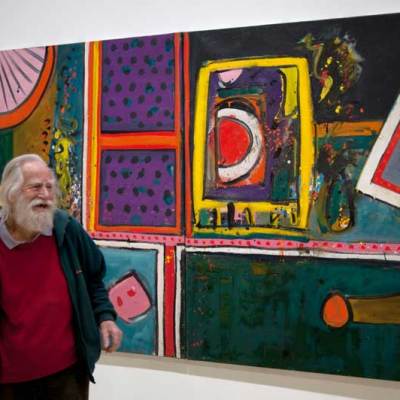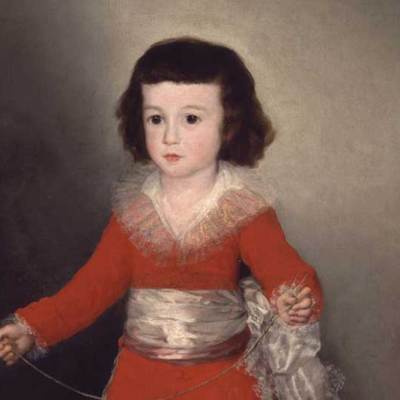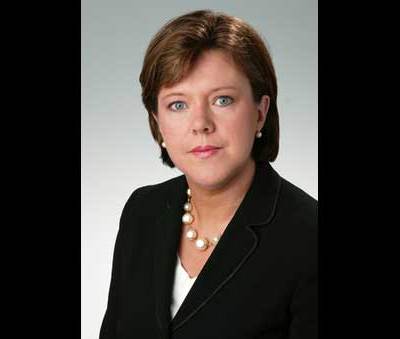In Apollo’s April issue, Matthew Sperling interviewed American painter Alex Katz (b. 1927), as a new exhibition of his portraits opened in Paris. In this previously unpublished extract, they discuss Katz’s memories of the New York School and his love of poetry, especially the work of his friend Frank O’Hara (1926–66), the poet, art critic and MoMA curator.
…Thinking about that ‘50s scene in New York, one’s impression is that everyone was constantly drunk and at cocktail parties, and yet a lot of work got made.
Well, you know, I could not keep up with someone like Frank O’Hara. If I went to lunch with him, I had to go home and go to bed. He would wake up and have a bourbon and orange juice for his breakfast, and then he would go and have a lunch, and a lunch consisted of a French restaurant and a lot of wine. Then when he finished work there was cocktails, and after cocktails he went to the theatre. He would meet all his friends at the theatre. And then after the theatre there comes the dinner, and with the dinner comes the serious drinking. And the conversation goes like this: ‘Tomorrow you’ll call me up, Frank, and you’ll say “Did I say anything bad?”’
He couldn’t go on the way he was going on, and he was the strongest of them. John Ashbery was living this outrageous life. It’s amazing he’s alive. He drank everything. Drank so he could hardly walk, and his boyfriend had to take him home. He could have died of anything. He had so much — what do you call it? — casual sex.
In Joe Brainard’s piece about going up to see your show in Connecticut, he says, ‘How Alex all these years has remained so pure is beyond me’ – what do you take that to mean?
I never got involved in drugs, or any of the wild goings-on – I think that’s part of it.
I love that picture ‘Marine and Sailor’ [1962], where you have Frank O’Hara and Bill Berkson dressed up in uniform – what was the story there?
In the late 1950s I loved the romance of the sailor. The sailor as an image. I was a sailor, and I’d got my uniform, and my brother was a marine, so I’d got his uniform. You have the uniforms, and you start putting all these different pictures together. It’s a romance picture, a romance image that doesn’t exist today. It seemed kind of funny the whole thing, because Frank O’Hara had been a sailor, but he was really more like a marine in person, and Bill Berkson was more like a sailor.
I did one [Rockaway, 1961] with a marine, a sailor and Maxine Groffsky, who was the literary lady of the time, the most desirable woman in the art world. She started off with [Philip] Roth – Goodbye, Columbus, the first book, is about her – and then she became Larry Rivers’s girlfriend, and then broke up with him and was Jasper Johns’s girlfriend (the only one he ever had, I think), and she ended up with Harry Mathews. She was the girl. Fantastic looking. But anyway, it was a sailor and a marine, and the guy in the sailor uniform, George Montgomery, said, ‘I have to go for a pack of cigarettes’ — and Johnny Button just said, ‘He wants to cruise.’
Do you get as much from the other poets as from O’Hara’s work?
It’s kind of funny: Kenneth [Koch]’s stuff was the most popular in the ‘50s, and then Frank’s. Kenneth’s stuff is brilliant, and technically he could write a long poem as good as Don Juan. Season on Earth is as good as Don Juan, in continuous energy. John [Ashbery] controlled the ‘60s. John took avant-garde art and brought all that into it. He was all over the ‘60s; Frank and [Allen] Ginsberg were out of it. And at the end it was Jimmy Schuyler who became everyone’s hero.
But of them all, I prefer Frank, because of the emotional extension. There’s nothing contained. I could never do that. I don’t have the courage to do what Frank did. He’s the poet of my time, and I like him better than anyone, and I like him better than any older poet.
As a critic as well –
As a critic he’s terrific. He’s the most dynamic man of his time. He had seven or eight poets who were completely dependent on him. Basically he’s an Irish Catholic who went off the tracks, but all his life he was a moralist. He was writing as an Irish Catholic who believes in God, but not the God of the Church. Well, I don’t believe in God, I’m really in another place, but he and Edwin Denby, at the bottom of them is God.
Frank had an idea of style, and he was trying to help all the artists he liked with it. He was kind of a terrific person that way. His thing was basically: ‘Tennessee Williams is okay; anything better than Tennessee Williams is great art’. He isn’t going to say, ‘Tennessee Williams is not as good as Shakespeare’. That’s his sense of accepting the immediate world.
And would you have technical discussions about your own work with O’Hara?
No. I don’t know what the heck we were talking about. We talked about other things a lot. I remember the thing he said about Tennessee Williams, because I’m much snottier about art than he is. For me it’s like, poetry has to be very good otherwise it’s not interesting. But for him, a lot of poetry’s very good, and the same with painting. He likes Tàpies, and Tàpies to me is just okay. But when you think of him with Tennessee Williams, then Tàpies makes sense. Or Mike Goldberg, or Hyman Bloom. They all make sense to him, as good openers.
Alex Katz was interviewed by Matthew Sperling in Apollo’s April issue.



